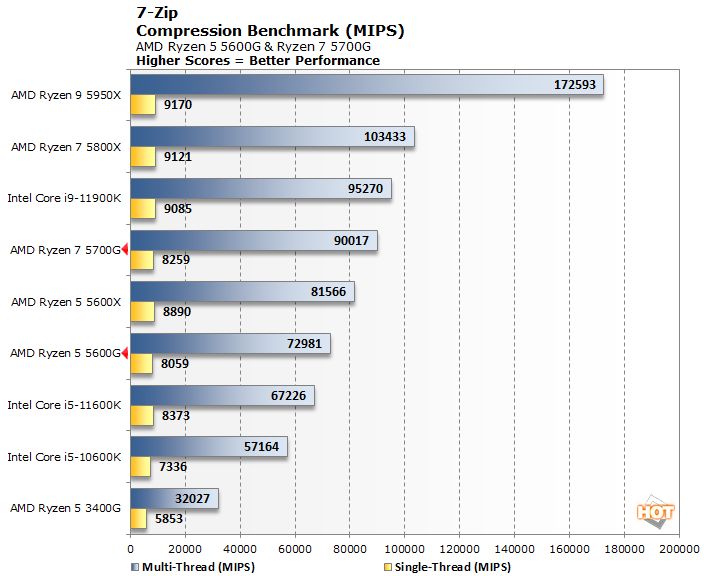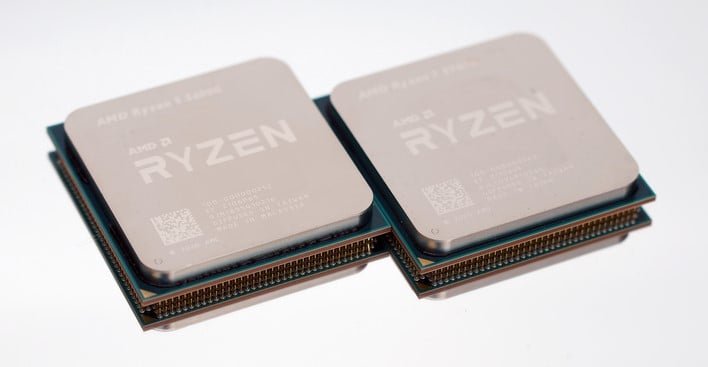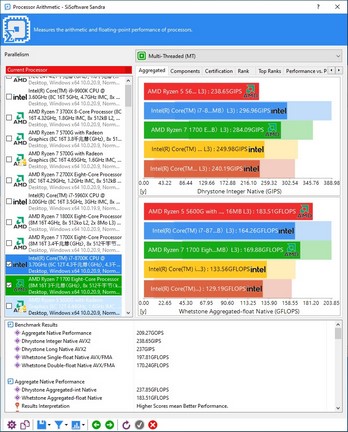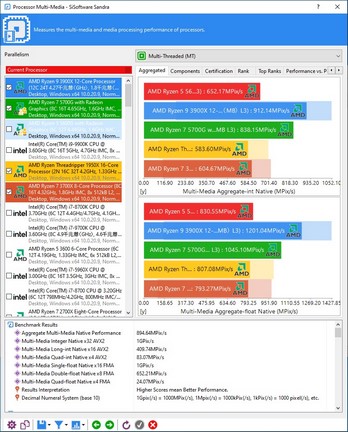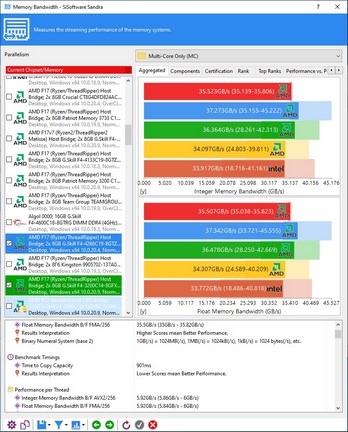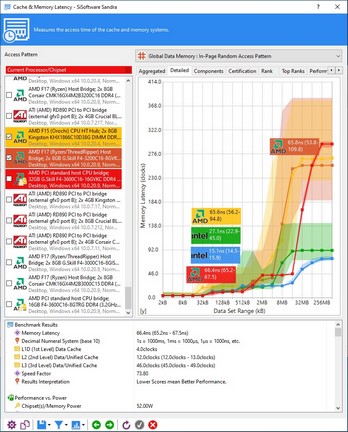AMD Ryzen 5000G Series Review: Zen 3 APUs Deliver Big Value
AMD Ryzen 5 5600G And Ryzen 7 5700G: CPU And System Level Benchmarks
When the Windows installation was complete, we installed all of the drivers necessary for our components, disabled Auto-Updating and Windows Defender, and installed all of our benchmarking software. When that process was done, we performed a disk clean-up, cleared any temp and prefetch data, and optimized all of the SSDs using Windows' built-in utility. Finally, we enabled Windows Focus Assist to minimize any potential interruptions and let the systems reach an idle state before invoking a test. Please note, that the Intel 11th Gen processors were tested with Adaptive Boost enabled for all of the standard tests.
HotHardware's Test System Configurations
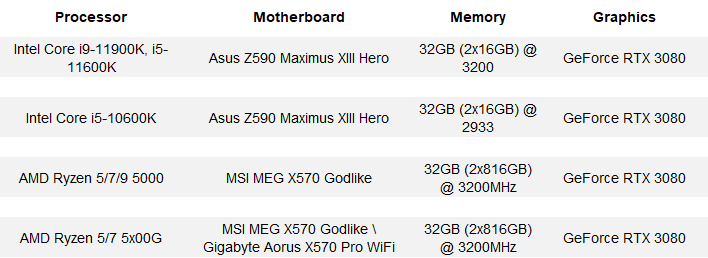
SiSoft SANDRA 2021 Sub-System Benchmarks
We began our testing with the latest version of SiSoftware's SANDRA 2020, the System ANalyzer, Diagnostic and Reporting Assistant. We ran four of the built-in sub-system tests that partially comprise the suite (CPU Arithmetic, Multimedia, Cache and Memory, and Memory Bandwidth). All of the scores reported below were taken with the CPUs running at their default settings, with 32GB of DDR4 RAM running at 3,200MHz, in dual-channel mode.
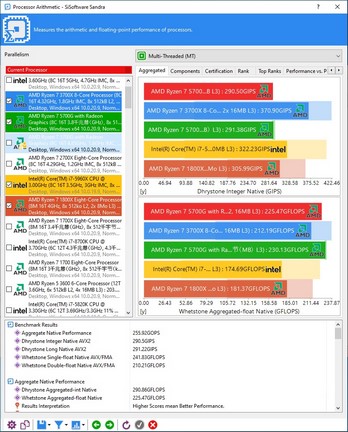
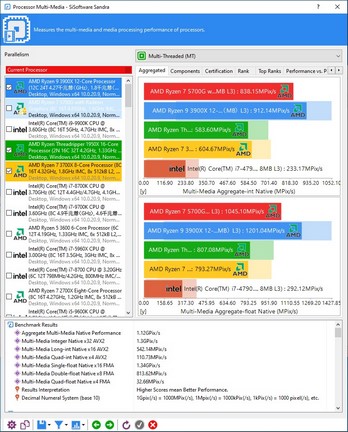
| Ryzen 7 5700G Processor Arithmetic |
Ryzen 7 5700G Multi-Media |
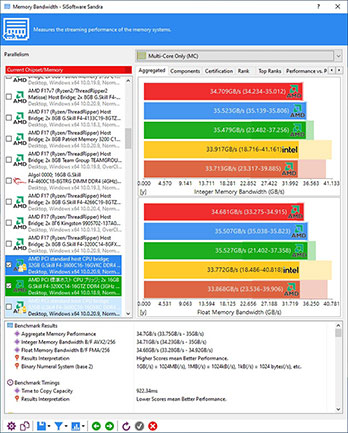
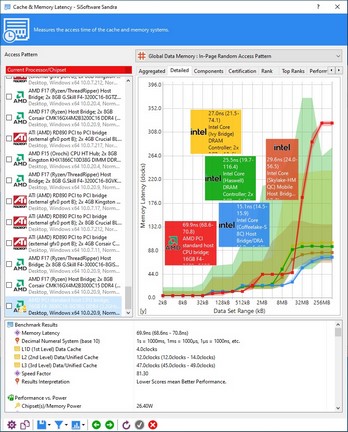
| Ryzen 7 5700G Memory Bandwidth |
Ryzen 7 5700G Cache And Memory |
| Ryzen 5 5600G Processor Arithmetic |
Ryzen 5 5600G Multi-Media |
| Ryzen 5 5600G Memory Bandwidth |
Ryzen 5 5600G Cache And Memory |
GeekBench Synthetic Results
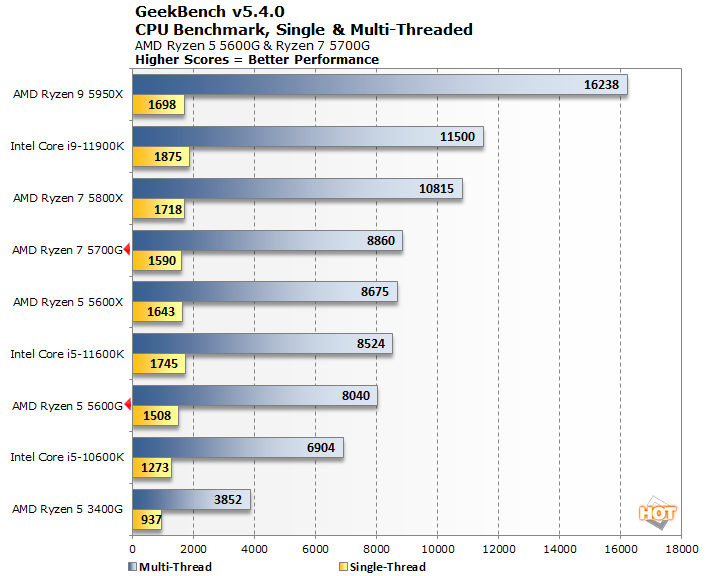
The Ryzen 7 5700G and Ryzen 5 5600G perform about as you would expect in GeekBench, based on their branding. The higher-end Ryzen 7 5700G falls in behind the higher-clocked, higher-TDP Ryzen 7 5800X and the Ryzen 5 5600G lands behind the Ryzen 5 5600X.
PCMark 10 System Level Benchmarks
Next, up we have some full-system testing with PCMark. We're reporting all test results from the PCMark 10 benchmark suite, including the Essentials, Productivity, Digital Content Creation and the total PCMark score. The Essentials test covers workloads like web browsing, video conferencing and app start-up times, while Productivity tests everyday office apps from spreadsheets to word processing. Finally, the Digital Content Creation test evaluates performance of a machine with respect to photo and video editing, as well as rendering and visualization.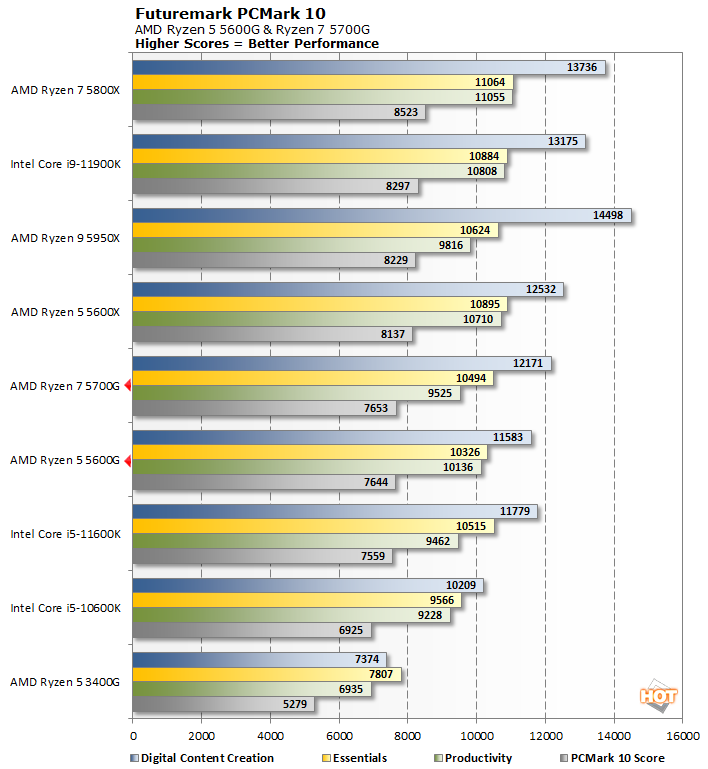
The Ryzen 7 5700G and Ryzen 5 5600G fall right about in the middle of the pack in our PCMark 10 results, just missing the mark set by the Ryzen 5 5600X. Both chips outrun the Core i5-11600K, however, and represent a massive step up over the previous-gen Ryzen 5 3400G APU.
Speedometer 2.0 & Jetstream 2.0 Webapp Results
Next up, we have some numbers from the Speedometer 2.0 and Jetstream 2 tests available at browserbench.org. The Speedometer Benchmark Suite uses a wide array of latency and throughput benchmarks to evaluate web application performance and Jetstream evaluates Javascript and WebAssembly performance. Both tests take all of their individual results and tabulate them into a final score.These benchmarks measure performance of an array of browser-based technologies used on modern, rich web applications. Scores in these benchmark are an indicator of the performance users would see when browsing the web and running advanced web apps. All of the systems were tested using the latest version of Microsoft's Edge browser, with default browser settings, on a clean install of Windows 10 Professional x64.
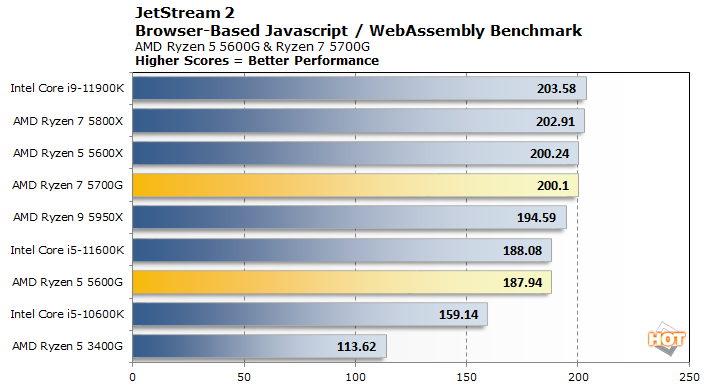
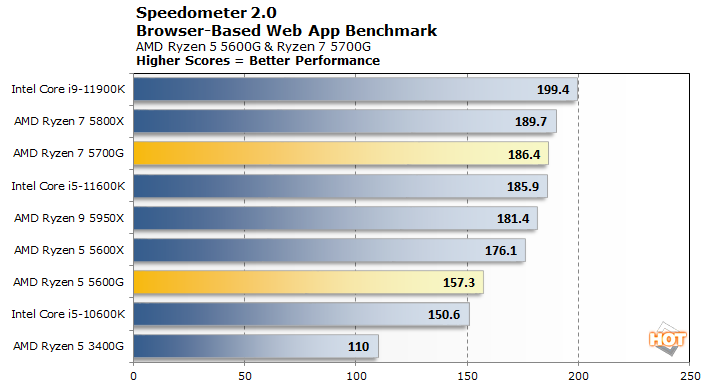
7-Zip Data Compression Benchmark
